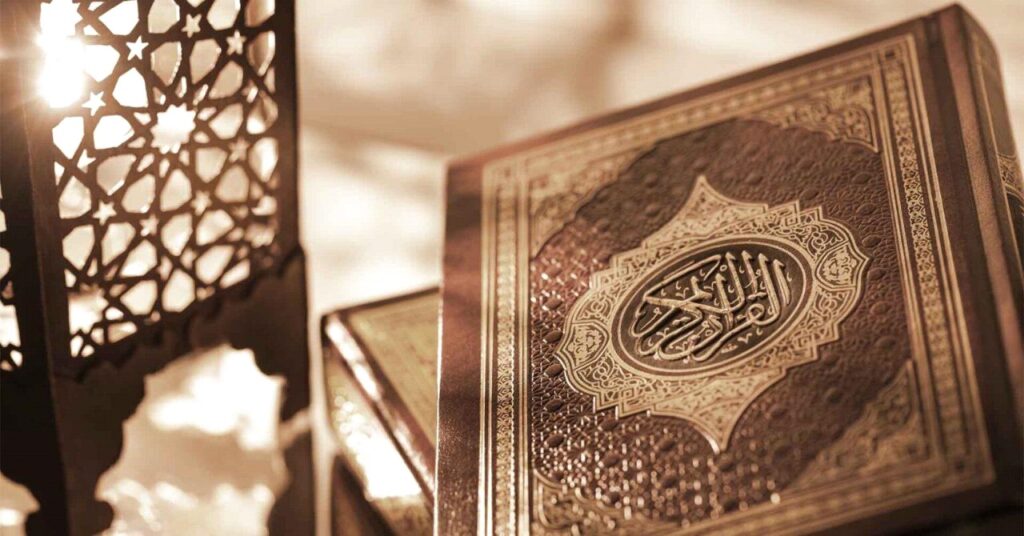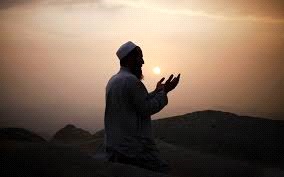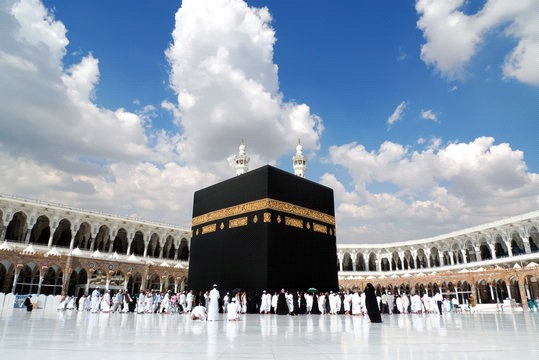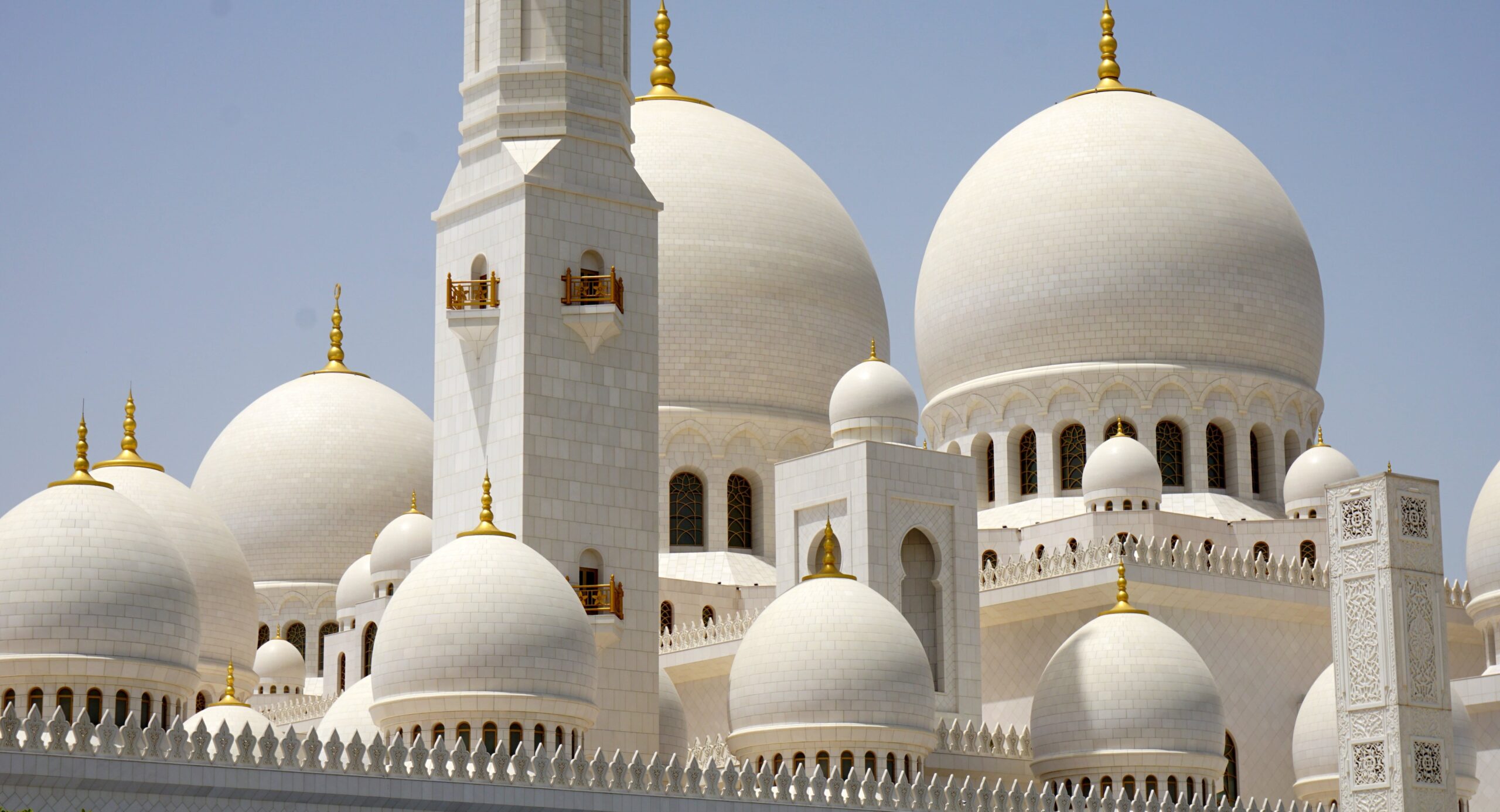The Five Pillars of Islam: A Complete Guide
Islam, one of the world’s major religions, is structured around the Five Pillars, which form the foundation of a Muslim’s faith and practice. These essential pillars are Shahada (faith), Salah (prayer), Zakat (charity), Sawm (fasting), and Hajj (pilgrimage). Each pillar holds significant spiritual meaning and practical relevance in a Muslim’s everyday life. Let’s explore these pillars in more detail.
- Shahada (Faith)
- Salah (Prayer)
- Zakat (Charity)
- Sawm (Fasting)
- Hajj (Pilgrimage)
1. Shahada (Faith)
The first of Islam’s Five Pillars is the Shahadah. It means “There is no God but Allah, and Muhammad (PBUH) is his messenger.”. This is the basic principle of Islam. A person is not a Muslim if they are unable to repeat it with full faith. Muslims declare that Muhammad (P.B.U.H.) is the prophet of Allah and that Allah is the one God when they say this. They accept this as a fact that by learning what Islam means, people will adhere to all of its laws in their daily lives.

Significance:
The core of the Islamic religion is the concept of a single Allah, around whom all else is based. Muslims recite the Shahada (shahadah) at each of the five daily prayers as a reminder of this essential concept. Muslims also recite shahada at several other significant points in their lives.
Muslims must confess their belief in the prophet Muhammad (peace be upon him) as Allah’s messenger to keep up with the second portion of the Shahada. This reminds Muslims not just of the significance of the Prophet Muhammad (peace be upon him), but also of the need never to identify Allah with any partners. Allah is still one God, and Muhammad (peace be upon him) is his messenger.
Facts about the Shahada:
- Among the five pillars of Islam is the shahadah. Muslims are required to keep this precious proof throughout their lives and to express it in all of their deeds and purposes.
- The Shahadah (call to prayer) is recited in the Adhan.
- Muslims are required to perform Salah at five distinct times of the day, and throughout that time they must say the Shahadah.
- Saying the Shahadah upon converting to Islam marks the start of a person’s life as a Muslim and their admission into the faith.
- The Shahadah is said to be part of the adhan and is intended to be the last words uttered by Muslims before they die. It is the first thing a Muslim baby hears when they are born.
Practice:
The Shahada is recited during daily prayers, and at significant life events such as birth and death, and is the cornerstone of a Muslim’s faith and identity. It is a constant reminder of a Muslim’s commitment to the teachings of Islam and to living a life according to its principles. The Shahada is often the first word whispered into the ears of a newborn and the last word said by a dying Muslim, underscoring its importance throughout a Muslim’s life.
It matters to take Shahadah with purpose. Reciting the word with sincerity, acceptance from the heart, and intelligence is required. When taking Shahadah, it’s important to understand the meaning of the terms. Says Allah (SWT) on genuine submission in the Qur’an:
“And who can be better in religion than one who submits his face (himself) to Allah (i.e., follows Allah’s religion of Islamic monotheism), and he is a Muhsin (a good-doer).”
[al-Nisa 4:125]
2. Salah (Prayer)
The act of performing the required daily prayer, known as salah, five times a day at specific times, is the second pillar of Islam. The five hours of prayer run from sunrise to midnight, however, the exact times vary according to the observer’s location and season. Here is the sequence in which the prayers are stated:
- Fajr begins at sunrise and concludes at daybreak.
- Zuhr, or midday, begins when the sun has risen beyond the horizon and lasts till Asr.
- Asar begins late in the afternoon until shortly before dusk occurs.
- Maghrib is the first month to begin as the sun goes below the horizon.
- Isha This period lasts until midnight and begins after Maghrib time, when the red sunset comes.

Significance:
Salah is a prominent aspect of Islamic practice, with deep spiritual, moral, and social implications for Muslims. Salah, a basic principle of Islamic faith and submission to Allah. It is among Islam’s five pillars. Spiritually, it is a direct, personal relationship with Allah, bringing a sense of loyalty into one’s life as a Muslim.
Salah nourishes the spirit, calms the strong seas within, provides a sense of purpose, and cultivates an understanding of the relationship. It reminds a Muslim every day that he or she is a pure servant of Allah. There is no other reason for their existence than their bond with Allah.
Salah isn’t always just about spirituality. In a sense, it’s more ordinary than that, perhaps even healthier. It disciplines Muslims to be morally conscious of their lives. The practice of praying five times a day structures one’s day, helping to cultivate a disciplined lifestyle with regular time. It plays a part in helping you stay on track and focused on what matters. And through repetition, it habituates us to adopt moral behaviors that shape the way we think and act. With salah, we are more likely to behave ethically and to be better humans for it.
Facts about Salah:
- Salah is an essential part of a Muslim’s life.
- Muslims are required to reflect on the verses of the Qur’an, the Shahadah, and the qualities of Allah every day during prayer.
- A vital component of Salah is ablution.
- Salah comes after Adhan.
- Salah serves as a crucial reminder that Allah (SWT) is the only one greater than everyone else.
Practice:
Every prayer is a combination of individual physical movements and the verses of the Quran. This act requires Muslims to clean up their physical and spiritual sides by performing ablution (wudu) before praying. The qibla is the direction Islamic worshippers face during their prayers; it points toward the Kaaba in Mecca. The prayers consist of verses from the Quran and praise for Allah.
3. Zakat (Charity)
Zakat means “to purify” or “to cleanse.” In Islam, giving charity is required (zakat). Giving what Allah (SWT) has ordered to those who are qualified according to the Qur’an is a method of worshiping him. Muslims donate to the less fortunate each year a portion of their stored wealth beyond a particular level, equal to 2.5 percent.
Islamic teachings demand that zakat cleanse wealth and facilitate its growth, both physically and spiritually. Giving from one’s riches shields one from difficulties, and Allah enhances one’s supply as a result of charitable giving.

Significance:
Zakat is one of the Five Pillars of Islam and holds great importance for Muslims. It involves giving a portion of one’s wealth, usually 2.5% of their savings, to those in need. Zakat purifies the giver’s wealth and soul. By giving a part of their possessions, Muslims cleanse themselves of greed and selfishness, reminding them that their wealth is a trust from Allah. This act of giving gives a sense of humility and gratitude.
Zakat helps those who are less fortunate. It provides financial support to the poor and orphans to meet their basic needs. This helps reduce economic inequality and provides a safety net for the most vulnerable members of society. Zakat strengthens community bonds. When Muslims give Zakat, they contribute to the well-being of their community.
Facts about Zakat:
⦁ All Muslims who fulfill the required requirements have a religious duty to contribute a specific percentage of their annual wealth to charitable charities. This responsibility is known as zakat.
⦁ It is believed to cleanse annual income beyond what is needed to meet a person’s basic requirements and those of their family.
⦁ The worth of property and income are the basis for zakat.
⦁ For those who meet the requirements, the typical minimum amount is 2.5%, or 1/40 of a Muslim’s whole wealth and savings.
⦁ When a person’s wealth falls below the cutoff point in a lunar year, they are not obliged to pay zakat.
Practice
Zakat is calculated annually and given to specific categories of beneficiaries. Zakat is given to the following groups of people: people who are poor and orphaned; struggling Muslim converts; imprisoned individuals; those in poverty; soldiers defending the Muslim community; and those who become lost while traveling. Zakat is a religious requirement for all Muslims who match the required wealth standards, and it is one of the Five Pillars of Islam. This law has caused disagreements and has played a significant part in Islamic history.
4. Sawm (Fasting)
The word for fasting in Arabic is called a sawm. Muslims must fast during the month of Ramadan after reaching puberty. This means that from sunrise to dusk, they must stay away from eating, drinking, sexual activity, and engaging in offensive speech or conduct.
According to Islamic belief, Allah revealed the Qurʾan, the holy book of Islam, to the Prophet Muhammad (peace be upon him) during Ramadan on the “Night of Power” (Laylat al-Qadr), which is remembered on one of the last ten nights of Ramadan, generally the 27th night. The revelation was meant “as guidance for the people.” Ramadan is a time for Muslims to reflect, read the Quran loudly, and participate in community prayer at the mosque. For those who celebrate the holy month with fasting, prayer, and sincere desire, God forgives their previous sins.
Significance:
Fasting helps develop the value of purity (taqwa), both internally and externally, by teaching us to control our thoughts. Fasting is a highly spiritual discipline that has physical, mental, and emotional benefits. Allah invites Muslims to temporarily avoid the essentials and basic desires that make up our human selves during this holy period.
By doing this, Muslims can gain control over their distractions, which allows them to remember their ultimate goal in life worshiping Allah. Maintaining the sawm for Allah is a particular act of devotion that comes with a specific reward.
However, gaining control over our anger is another benefit of fasting. The capacity to maintain mental and behavioral control while one is being made angry is what defines true strength. For this reason, during fasting, we should stay away from arguing or responding negatively to others. Additionally, fasting is an expression of appreciation to Allah for His mercies and compassion for those who are poor. It is important to keep in mind that a large number of individuals worldwide suffer from hunger without consciously deciding to do so.
Facts about the Sawm:
- Sehr and iftar are the two primary meals eaten throughout Ramadan.
- Increasing proximity to Allah.
- An intention-filled dua of niyah (prayer) is spoken to start a fast.
- It is a lucky month to be charitable and generous throughout.
Practice:
Each day, the fast is broken with a meal called Iftar, which usually begins with dates and water, following the tradition of the Prophet Muhammad. The meal before dawn is called suhoor. Ramadan ends with Eid al-Fitr, a joyful celebration of communal prayers, feasting, and gift-giving. During Ramadan, Muslims also participate in other prayers (Tarawih) and recite the Quran in its entirety, deepening their spiritual bond.5.
5. Hajj (Pilgrimage)
The Hajj is a respected trip that Muslims undertake in Makkah, Saudi Arabia’s Masjid al-Haram. Being one of the five pillars of Islam, every Muslim is required to do it at least once in their lifetime. Every year, in the middle of the twelfth month of the Islamic calendar, Dhul Hijjah, Hajj occurs. The Hajj takes place from the eighth day of Dhul Hijjah to the thirteenth day.
All Muslims who are financially and physically capable of making the journey are required to perform the hajj, but only if their absence won’t negatively impact their families. A person might choose to “stand in” for them by selecting a friend or family member who is making the trip to do the hajj on their behalf.

Significance:
Hajj, the annual Muslim pilgrimage to Mecca, has great significance for Muslims around the world. It is an important religious obligation for those who are physically and financially able to do this at least once in their lives. This pilgrimage is a deep act of worship and obedience to Allah, expressing deep commitment and faith.
Spiritually, Hajj offers pilgrims the opportunity to seek forgiveness and purification. It is believed that those who perform the Hajj with good intentions can have their sins forgiven, enabling them to make a fresh start.
Hajj also creates a sense of unity and equality among Muslims. Pilgrims from all over the world, irrespective of their origins, converge on Mecca wearing simple white robes, a symbol of purity and perfection. This shared experience promotes a sense of brotherhood and solidarity, emphasizing that all Muslims are equal in the sight of Allah.
Facts about Hajj:
- The completion of the Hajj earns one a spot in paradise.
- Those who accept the Hajj are known as Hajjis.
- the Hajj and Eid al-Adha go hand in hand.
- The Hajj does not observe distinctions between genders.
Duration of Hajj
The Hajj pilgrimage takes place from the eighth to the twelfth or thirteenth day of Dhul Hijjah, lasting five to six days. Four days later, on the first day of Eid al-Adha, is when the new crescent moon is seen.
Many ceremonies and rituals make up the pilgrimage, some of which need to be carried out in a certain order. Because pilgrims must travel between destinations and cover an average of 5 to 15 miles of walking each day, it can be physically taxing. Hajj performance is a test of patience and tolerance; it’s a physical, mental, and spiritual attempt that requires considerable planning and is, for many, a once-in-a-lifetime experience. On the other hand, it gives Muslims a chance to renew their spiritual identity, apologize for their mistakes, and get nearer to Allah (SWT).
Practice:
Hajj is performed in the Islamic month of Dhu al-Hijjah. Pilgrims perform various rituals, including Tawaf (circling the Kaaba), Sai (walking between the mountains of Safa and Marwah), and the symbolic stopping of Satan at Mina The pilgrimage ends during Eid al-Adha to commemorate the wish Abraham had to sacrifice his son in obedience to God. Hajj is a physically demanding and spiritually demanding pilgrimage that requires preparation and devotion.
Conclusion
A Muslim’s beliefs and behaviors are clearly outlined in the Five Pillars of Islam. It is a meaningful expression of religion, community, and social duty rather than merely a ritual exercise. Every pillar enhances the ties that bind a Muslim to Allah, his fellow Muslims, and all of mankind. Muslims have a balanced, orderly, and spiritually fulfilling existence that embodies the core principles and teachings of Islam when they follow these pillars. These eternal and broad pillars define Islam’s path in its attempt at a meaningful and purposeful existence. Muslims are reminded of their obligations to God, themselves, and others via the Five Pillars, which promote peace and unity in both people and communities.




Hi there Dear, are you truly visiting this web site onn a regular basis,
if so afgterward youu will definitely obtain fastidious knowledge. https://lvivforum.Pp.ua/